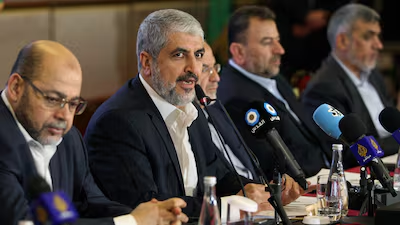Hamas leaders were said to have left Qatar as international pressure increased on the Gulf state over its ties with the Palestinian group. Qatar is already under scrutiny from Western nations for hosting senior Hamas officials amid the ongoing Israel-Gaza conflict.’ Sources close to the matter said that while the move amounts to a change of tack from Qatar in dealing with international grievances, it does not represent an open break with the organization.’
This move responds to Qatar’s attempts to assuage global condemnation while sustaining its strategic position in the Middle East for humanitarian and diplomatic purposes. Doha has faced pressure in dealing with its links to Hamas, a group labeled a terrorist organization by some states, such as the United States and the European Union.
Hamas Office Remains Open
Despite losing its leadership, the Hamas political office remains active in Doha. This office houses international coordination, fund-raising activities, and the distribution of humanitarian aid to Gaza. The decision to retain the office of Qatar exemplifies its commitment to the Palestinian cause within the framework of minimal direct involvement with Hamas’ military programs.’
Officials insist it is in line with Qatar’s dialogue and humanitarian work policy and does not support violence. Doha has taken the stance of a mediator in conflicts in the Middle East, focusing on peaceful solutions and the urgent need to improve the humanitarian situation in Gaza.
More:
Qatar Balances Global Criticism and Regional Diplomacy
Qatar hosting Hamas leaders has been an issue of controversy, attracting Western nations and key allies who take offense against the group’s alleged actions and involvement in the Israel-Gaza conflict. Defending its move, Doha said that its association with Hamas was part of a broader effort to help mediate and provide aid to Gaza’s besieged civilian population.’ Analysts said the expulsion of Hamas leaders represents an attempt by Qatar to walk a thin tightrope: staying in line with regional alliances while reassuring the international community of its commitment to peace.
‘Long established as a neutral mediator, the Gulf state finds itself under the microscope as international pressure mounts on its relationships with Hamas.
The exit of Hamas leaders from Qatar might be a significant blow to its regional strategy and alliances.
‘A re-alignment of Hamas’s political and logistical operations might become necessary as Qatar takes a step back from direct involvement, potentially searching for new bases of support.’ This will also shake up Middle East diplomacy as Qatar recalibrates its positioning and influence, ceasing to alienate vital global partners.
The Future Road for Qatar
Whether Qatar is well positioned to mediate future Middle East conflicts remains a question of interest. Even as it plays a vital role as a dialogue facilitator, its association with Hamas has attracted criticism that could send the country’s standing as a neutral negotiator into a downturn. ‘As the situation evolves, Qatar’s actions will likely be closely monitored, reflecting the challenges of balancing regional alliances with global diplomatic expectations in the volatile Middle Eastern landscape.’















